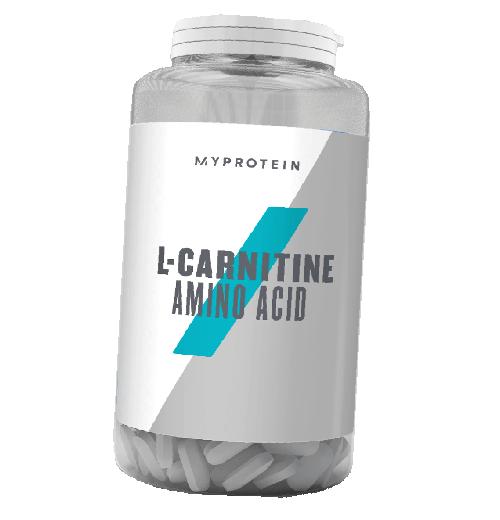MyProtein L Carnitine L-carnitine intake is carried out in the hope of intensifying the destruction of fats.
L-carnitine (L-carnitine) – a natural substance related to B vitamins, performs a number of important functions in the body, and is a fat burner.
L-carnitine is often called a vitamin-like substance, but it is not a vitamin, since the body can synthesize it on its own.. The level of L-carnitine is homeostatic, all its excess is effectively removed from the body, it does not accumulate in excess. In the human body it is present in muscles and liver.
Biosynthesis of L-carnitine
L-carnitine is synthesized in the liver and kidneys, from which it is transported to other tissues and organs.. The synthesis of levocarnitine occurs with the participation of vitamins C, B3, B6, B9, B12, iron, lysine, methionine and some enzymes..
If there is a deficiency of at least one of the components, L-carnitine deficiency may develop with disruption of body functions.. This, however, is rarely observed, often due to a genetic defect in the enzymes responsible for the synthesis of L-carnitine.
Functions and effects of L-carnitine:
Fat burning
L-carnitine transports fatty acids (structural elements of fat) into the mitochondrial matrix, where they are destroyed with the release of energy. Additional intake of L-carnitine is carried out in the hope of intensifying the destruction of fats.
Increased mental and physical energy
As shown by the results of a double-blind, placebo-controlled study conducted in 2007 in Italy, the administration of L-carnitine at a daily dose of 2 g for 6 months led to an increase in mental and physical activity. Subjects noted an improvement in mood, increased endurance and an increase in overall tone.
Stress Resistance
Research has proven the effectiveness of carnitine in increasing tolerance to stress and enhancing the adaptive capacity of the human body.
Detoxification
L-carnitine maintains the level of free CoASH, which is involved in the detoxification of organic acids and xenobiotics, is necessary for the functioning of certain enzymes and for the normal functioning of the Krebs cycle.
Anabolic functions
The anabolic effect of L-carnitine was established experimentally; during experiments using this supplement, scientists noticed that the subjects not only lost fat, but also increased lean muscle mass..
The mechanism of this action is still not fully understood, but there are a number of theories that explain the anabolic effect of carnitine by its participation in phospholipid metabolism, optimization of the Acetyl-CoA/CoASH balance, greater use of fat as an energy source, and improvement of neurotransmission.
Lowers cholesterol
L-carnitine reduces harmful cholesterol, thereby preventing narrowing of blood vessels in the heart and brain, and prevents heart attacks and strokes.
Protects the heart and blood vessels
First of all, this effect is achieved by reducing the level of cholesterol, which affects small coronary vessels..
In addition, L-carnitine improves myocardial metabolism and has an antioxidant effect.. Clinical studies have shown that after a course of carnitine, people with heart disease complained less often, and myocardial function improved.
Other effects
L-carnitine has neuroprotective, antihypoxic, antioxidant and antithyroid effects, prevents apoptosis and osteoporosis, and stimulates tissue regeneration.
Composition:
Composition per serving - 2 tablets:
L-carnitine 1000 mg
Ingredients: L carnitine L tartrate, microcrystalline cellulose (filler), Calcium carbonate DC 90% (filler), magnesium stearate (anti-caking agent), silica (anti-caking agent)
How to use:
Take 2 tablets daily, preferably between meals or before training.
Warnings: Do not use if you are allergic to any of the compounds. Do not exceed the recommended daily dose. Consult a physician during pregnancy or lactation. Food supplements should not be used as a substitute for a varied and balanced diet.. Keep out of the reach of children. Store in a dry and cool place. Protect from direct sunlight.
























